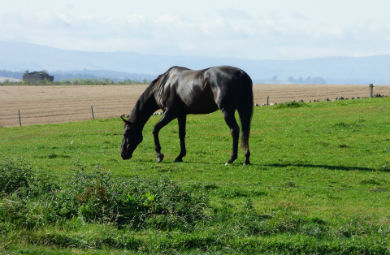Select tab
About
This Lantra-accredited Customised Award is exclusively developed and delivered by a Lantra-approved Training Provider, who meets our quality standards. The course is specifically tailored to meet learners’ needs. For further details about the course content and delivery locations, please contact the Training Provider using the details provided below.
The minimum age to undertake this course is 16.
A person qualified in Equido Level 3 should be capable of managing a yard of horses and staff both stable and field kept.
The finer details
- Equine Psychology
- Foal Handling
- Principles of Riding
- Assessing the Horse
- Health Checks
- Training the Horse
- Training the Horse for Competition
- Trailer Loading
- Field Care
- Stable Construction
Who should attend?
This course is perfect for someone looking to pursue an equestrian career as an equine trainer.What will be covered?
By the end of this course learners will:
Search for providers near you
If there are no suitable courses listed above, please fill in the details below and this will display a list of other course providers who also deliver this course.



